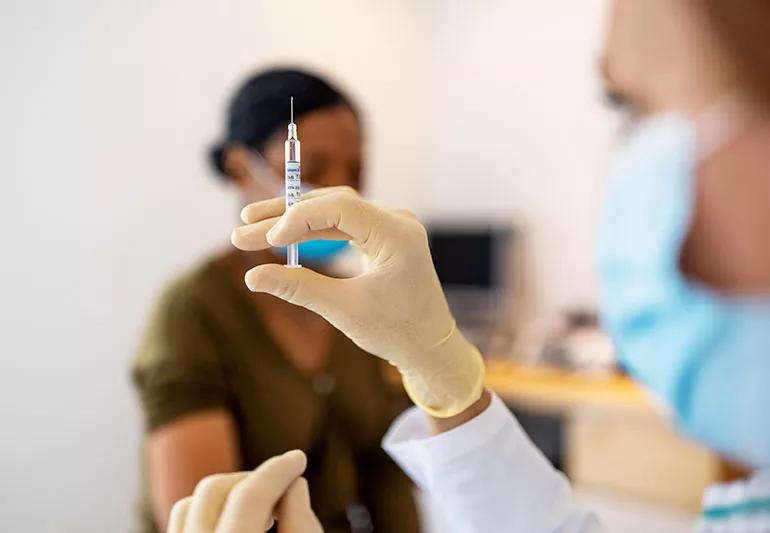The short answer from a primary care specialist

Image content: This image is available to view online.
View image online (https://assets.clevelandclinic.org/transform/487e1032-18e5-46d4-b2b1-2b773b9a3e15/JJVaccine-1278800490-770x533-1_jpg)
A healthcare provider holding a shot in their hands like they are going to administer a vaccine
A: The FDA has recommended resuming the use of the Johnson & Johnson single-dose coronavirus vaccine following a pause to review it after a small number of patients in the U.S. developed a rare blood clot disorder after receiving it.
Advertisement
Cleveland Clinic is a non-profit academic medical center. Advertising on our site helps support our mission. We do not endorse non-Cleveland Clinic products or services. Policy
At the time of the pause, 8 million doses of the Johnson & Johnson vaccine had been administered in the U.S., so although the reaction was extremely rare, federal health agencies made the decision to pause the vaccine out of an abundance of caution while more research was done.
All of the cases occurred in women between the ages of 18 and 59 and symptoms occurred six to 15 days after vaccination.
These reactions appear to be extremely rare, happening to a small percentage of people out of the 8 million who received the vaccine. The federal government and medical experts reviewed and analyzed the data before providing the recommendation that’s it’s safe to resume the vaccine and that any serious side effects are rare.
So what should you do if you already received the Johnson & Johnson shot or if you’re scheduled to?
Be on the lookout for headaches, stomach pain, leg pain or shortness of breath two to three weeks after getting the vaccine. If you’re experiencing any of these reactions, call your healthcare provider immediately.
– General pediatrician, Michelle Medina, MD.
Advertisement

Sign up for our Health Essentials emails for expert guidance on nutrition, fitness, sleep, skin care and more.
Learn more about our editorial process.
Advertisement
The latest vaccine offers the most up-to-date protection
Irregularities in cycle length and flow aren’t a cause for concern
Before you panic, here are the options to consider
You might be protected, but you still need to be careful
Get the facts before assuming the worst
It's not scary and it's another tool that can help us fight the coronavirus
An expert gives insight on what to do if you miss that second appointment
The short answer from an infectious disease specialist
Type 2 diabetes isn’t inevitable with these dietary changes
Applying a hot or cold compress can help with pain
Pump up your iron intake with foods like tuna, tofu and turkey